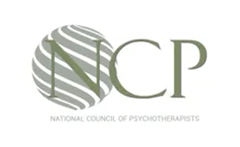About
Counselling at Inner Sanctum
This can lead to a more creative understanding of a situation and can encourage changes to be made where needed. It offers a space to explore thoughts and feelings about oneself and relationships with others in a safe way.
The counselling relationship is different from social relationships that it is non judgmental and provide a safe place in which to explore past and present feelings and the meaning of past and current relationships.
There are many different approaches to use in counselling and each one is different and unique, just like you! For this reason, it will be necessary to find a therapy style that is right for you and your problem. Some of the approaches used include psychodynamic counselling, Transactional Analysis (TA), Neuro-Linguistic (NLP) and cognitive behavioral therapy (CBT).
I have a special interest in adult Autism (ASD) and have continued to add to my knowledge and understanding of this Neural diversity, Unfortunately many undiagnosed adults on the autistic spectrum have gone on to develop mental health disorders like Anxiety and Depression through lack of understanding of themselves.


Counselling Services
Psychodynamic Counselling
Human beings have a tendency to repeat patterns of behaviour. Even when they would like to change these, they find themselves unable to do so. These patterns manifest themselves in the counselling room which enables the client to look at his/her behaviour patterns without fear of rejection.
Psychodynamic counselling is based, among other things, on the understanding of the unfolding of a person’s life from birth onwards.
It includes an understanding of the network of relationships that develop during growth into adulthood. It draws on the insights of psychoanalysis as a way of understanding the human personality, including the way individuals interact with each other. It takes note of the unconscious mind as well as conscious attitudes, and aids the resolution of unconscious conflicts, which allows for the development of a person’s full potential.
Psychodynamic counselling can be a long term course - it will need commitment from both the therapist and the client when entered into but it aims to help people overcome and deal with issues that have been in place for a long time.
CBT
Cognitive Behavioural Therapy (CBT)
When clients seek counselling for emotional problems, they typically describe their problems in terms of their feelings, or in terms of situations with which they cannot cope. The anxious client, for example, may describe how panicky he feels and how hard he finds it to deal with social situations. People rarely come for counselling complaining about their thinking, although self-defeating thinking is often a major reason for their difficulties. At the heart of CBT lies the idea that our interpretations of our experiences are hypotheses or beliefs, rather than facts and, as such, may be correct or incorrect to varying degrees. Furthermore, when people hold unrealistic and negative beliefs about themselves or their experiences, an emotional upset will result. If this negative thinking is extreme or persistent, it may lead to an emotional disorder. Low moods are likely to result, for example, if a client starts to hold false beliefs such as his life being totally pointless and that he is worthless.
A major difference between CBT and psychodynamic therapies lies in the degree of importance given to exploring early childhood experiences for the origins of early maladaptive patterns of thinking and behaviour.
In CBT, it can be very helpful to explore early experiences to enable a client to place his or her problems in a historical context, but this is not seen as a major part of counselling. The CBT view is that people are not so much disturbed by past events as by the way those events are viewed in the present.
Take, for example, the case of an emotional person who believes she is worthless. Her strong emotions are not produced by a childhood experience, such as her mother telling her that she was useless, but by the fact that she continues to think and believe this.
CBT seeks to help a person think more realistically, to question the false assumptions and core beliefs that create consequential bad feelings and maladaptive behaviour patterns about themselves, other people and the world in which they live. CBT aims to help people with a course of counselling, this can be long or short-term and will be discussed, agreed and reviewed along the way.
People seek help for an enormously diverse range of troubles including:
Stress
Stress
Anxiety
Anger management
Psychological abuse
Relationship problems
Panic attacks
Sexual abuse
Get IN Touch
Contact Us
Fill out our form below and we will get back to you ASAP!
Contact
Phone
Facebook






